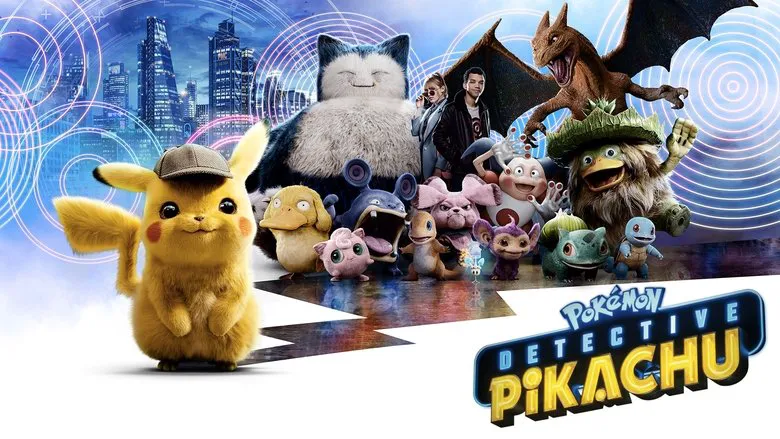The Art of Expectation Management: Why “Detective Pikachu” Was a Surprising Success Story
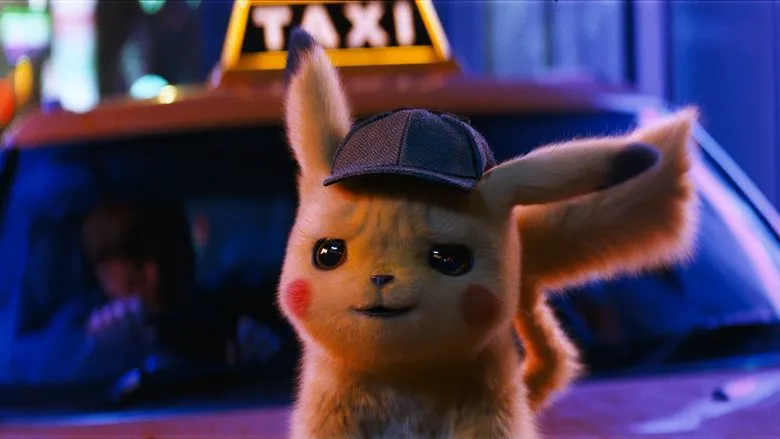
When looking back at “Detective Pikachu,” its considerable global success isn’t primarily attributable to its groundbreaking cinematic originality or an intricately woven plot. Instead, its triumph truly lies in a remarkably well-executed strategy of expectation management and a keen understanding of its audience. The film, quite effectively, sold an experience rather than a conventionally perfect narrative.
A Familiar Plot, Lacking Innovation
Truth be told, “Detective Pikachu” isn’t a masterpiece of narrative storytelling. The core storyline, revolving around a somewhat predictable father-son reconciliation arc, felt rather uninspired and, at times, forced. This emotional journey, while certainly a staple in many family films, lacked the depth or fresh perspective to truly captivate. Furthermore, the intriguing concept of Pokémon and humans coexisting harmoniously within Ryme City — a truly unique and appealing premise for any Pokémon fan — was disappointingly relegated to mere background motivation for the movie’s surprisingly generic villain and their world-domination scheme.
The overall plot felt remarkably similar to the wildly successful animated film “Zootopia” from a few years prior, particularly in its depiction of an idealistic city populated by diverse, interacting non-human characters and an underlying conspiracy threatening their peaceful coexistence. While “Zootopia” cleverly spun its themes of prejudice and social harmony, “Detective Pikachu” seemed to borrow the blueprint without fully developing its own unique thematic layers.
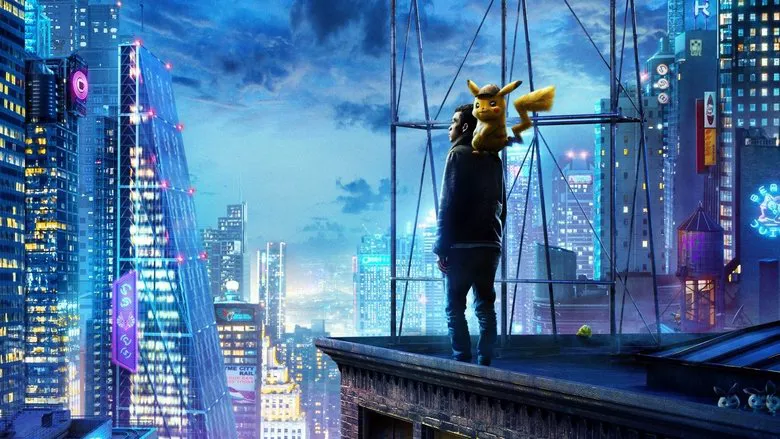
The Overwhelming Power of “Kawaii”
Yet, none of these narrative shortcomings truly mattered to the audience. Why? Because, as soon as that fluffy, digitally rendered Pikachu peered out from the big screen, adorableness became the film’s undeniable superpower. The collective gasps and delighted squeals that often erupted in theaters were a testament to the character’s profound “kawaii” appeal.
For a significant portion of moviegoers, the simple joy of witnessing a live-action, utterly charming Pikachu was more than enough to justify the price of admission. The understanding seemed to be universal: people were coming to see the beloved electric mouse be cute, intelligent, and, above all, real. As famously quipped by one viewer on a major Chinese ticketing platform, “The plot is so-so, but nobody came for the plot, right?” This sentiment perfectly encapsulates the collective experience and the film’s true draw.
Warner Bros.’ Masterclass in Audience Engagement
Warner Bros., the studio behind “Detective Pikachu,” deserves immense credit for their strategic and masterful handling of audience expectations. Their marketing campaign was ingeniously focused, almost exclusively spotlighting Pikachu’s irresistible cuteness while keeping the deeper story elements largely under wraps. This limited exposure of the plot cleverly managed to dodge any potential criticisms regarding narrative predictability or simplicity before release.
The studio even went as far as orchestrating a brilliant viral marketing stunt: a fake “leak” of the entire movie on YouTube, which turned out to be a looping, 100-minute video of Pikachu dancing hypnotically. This move didn’t just generate buzz; it reinforced the core sell of the film – the immersive presence of a charming, three-dimensional Pikachu. From start to finish, the marketing wasn’t peddling the film’s story; it was selling the captivating image and personality of Pikachu itself.
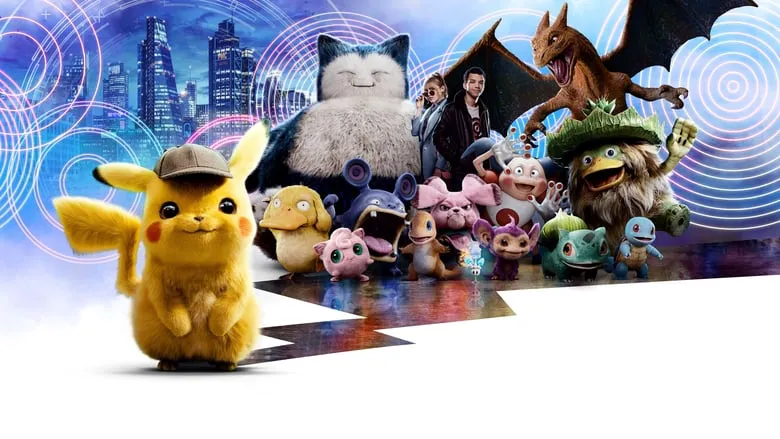
Beyond Cuteness: Infusing Edge and Wit
Of course, relying solely on Pikachu’s inherent charm would have been a tenuous strategy in the long run. While Pikachu is undoubtedly iconic and adorable in the beloved Pokémon anime, that cuteness can sometimes feel one-dimensional. Much like the realization that few could endure a solid 100 minutes of just Pikachu dancing, a film offering only saccharine sweetness might prompt viewers to just watch cute cat and dog videos online instead. The audience needed something more substantial than just “cute.”
This prompted Warner Bros. to intelligently infuse Pikachu’s inherent cuteness with another widely appealing trait: irreverence. Think of the Minions, for example; their mischievous, delightfully anarchic antics have earned them immense popularity, even leading them to transcend their origins in the “Despicable Me” series to star in their own highly successful standalone film. Their appeal lies in their playful subversion of established norms, and “Detective Pikachu” sought to harness a similar energy.
The Irreverent Magic of Ryan Reynolds
To truly amplify this irreverent aspect, an inspired casting choice was made at the vocal booth: Ryan Reynolds. Known globally for his portrayal of the wisecracking, fourth-wall-breaking superhero Deadpool, Reynolds brought an acerbic wit and quick-fire sarcasm to the voice of Pikachu that completely redefined the character. “Deadpool” itself was a massive box-office hit, cementing Reynolds’s persona as the “Merc with a Mouth.”
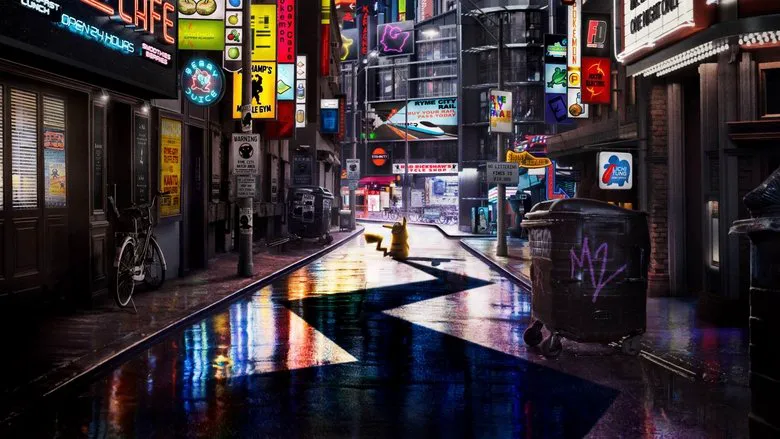
This casting choice imbued “Detective Pikachu” with a refreshing touch of adult humor and cynicism, setting it apart from its more child-centric animated counterparts. While the original Pokémon anime largely targets younger audiences with simpler plots focused on encountering new Pokémon and thwarting Team Rocket, “Detective Pikachu” comfortably ventured into slightly more mature territory. Jokes bordering on mildly inappropriate for children, such as Pikachu’s constant teasing of Tim about his pants falling down during a chase, added layers of unexpected comedy that resonated strongly with older viewers, preventing the film from feeling overly simplistic.
A Journey Back to Childhood: The Nostalgia Factor
Perhaps one of the most critical elements of “Detective Pikachu’s” success lay in its impeccable timing and its direct appeal to a massive, established fanbase. The Pokémon anime first aired in mainland China as early as 1998, and subsequently broadcast on various local television stations after 2002. The children who grew up glued to those broadcasts, avidly following Ash, Misty, Brock, and Pikachu’s adventures, have now matured into a significant consumer demographic within the global film market.
For this generation, seeing their cherished childhood memories — fully realized Pokémon creatures interacting within a believable live-action world — come to vivid life on the big screen was nothing short of a dream come true. The sheer novelty and faithful representation were often enough; their expectations were primarily centered on a visually rich, nostalgic experience rather than a groundbreaking cinematic narrative.
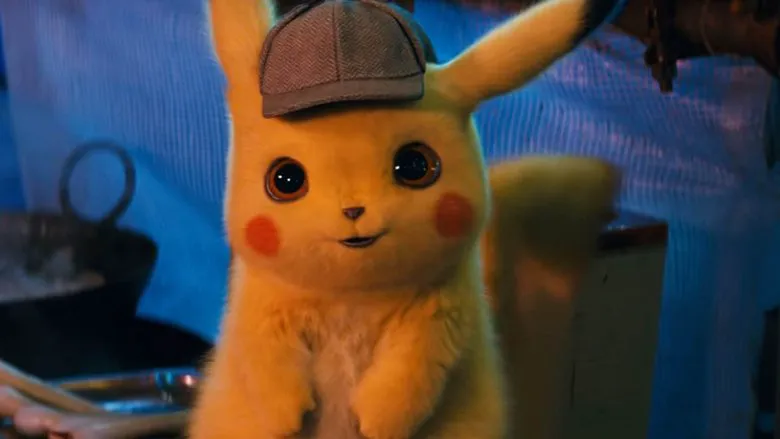
In this regard, “Detective Pikachu” more than delivered. It captured the essence of the Pokémon world with stunning detail and brought beloved characters to life in a way that truly resonated with past and present fans alike. And in the complex world of blockbuster filmmaking, hitting those key nostalgic notes and managing audience expectations so perfectly is, arguably, accomplishment enough for a box office win. The movie understood its assignment, and it executed it brilliantly.
